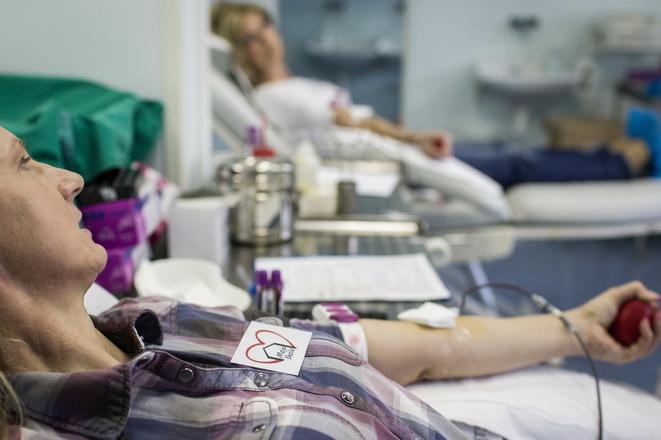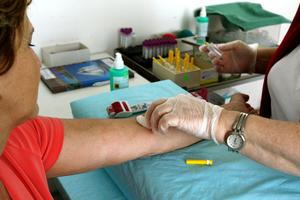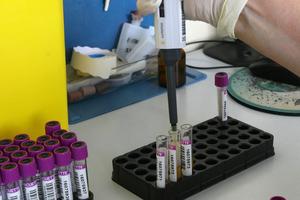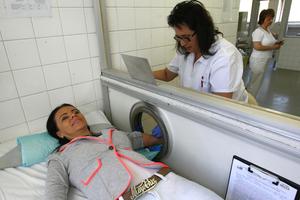Donating Blood
What conditions need to be met so I can donate blood?
You must be between the ages of 18 and 60, however, if you donate regularly it is possible to keep doing it after you are 65 if your weight is over 50 kilograms.
When I cannot donate?
You should not donate blood if you have ever used intravenous or intermuscular drugs, if you went through a hepatitis disease in the past or suffer from other serious or chronic diseases.
The questionnaire you will be asked to fill out also asks you to state if you are a man having intercourse with men, and if you often change sexual partners.
Women are not advised to donate blood shortly before, during, or shortly after menstruation and during pregnancy.
How often may I donate blood?
Men can donate every three months, and women every four months.
How long does the donation take?
The whole process from registration to leaving takes about two hours and the blood draw is from 5 to 15 minutes.
How much blood is taken?
450 millilitres of blood.
Should I take a vacation from work?
When donating blood during working hours, you are eligible to have paid time off for the duration of travel to/from the donation station and for recovery. However, you will need confirmation from a doctor to give to your employer.
How should I prepare for blood donation?
Drink a lot of water one day before donating, at least 2 litres. Moreover, it is recommended to drink half a litre of water in the morning on the day of donation. Black coffee is permitted.
Do not eat fatty food (cheese, butter, cream, meat) the evening or morning before donating. It is better to consume fruits, vegetables, fat-free bakery products, jam or honey.
Do not smoke 6 hours before donation, do not drink alcohol 12 – 14 hours before donation and do not do any intense physical activity, such as fitness or training the day before.
Should I bring my ID?
You will be asked to identify yourself with an ID and health insurance card. If you have donated blood before, bring your donating blood card as well. In the next step, you will fill in the questionnaire about your health, lifestyle and past illnesses.
How much will I get paid for donating blood?
Nothing. In Slovakia, you donate blood voluntarily without claim to the money.
Where can I donate blood?
At the National Transfusion Stations in various cities: Bratislava – Kramáre, Bratislava – Ružinov, Banská Bystrica, Košice, Martin, Nitra, Nové Zámky, Poprad, Prešov, Trenčín, Trnava, Žilina. The National Transfusion Service often organises mobile donations for the public. Learn more at their website (only in Slovak).
Hair
For what purpose should I cut and donate my hair?
The initiative Vystrihaj sa Slovensko (Cut your hair Slovakia) makes wigs from donated hair for free for women suffering from oncological diseases.
Who can donate hair?
Women, men, children.
What are the conditions?
The minimum length of hair for donating is 40 centimetres. Preferable is undyed or lightly dyed hair. Even grey hair and hair that was cut long ago and stored properly is suitable for donating. Hair should be cut in the direction of growth and tied with several hair elastics.
Where should I cut my hair?
If you are in Bratislava, the Einsteinova 21 hair salon will make sure that your hair is cut properly and your new haircut will be for free. If you live outside of Bratislava, look for a local hairdresser. There are almost 20 “friendly salons” in Slovakia who were taught how to cut hair correctly for donating purposes. Then send it via post to VSS, Liga proti rakovine SR, Brestovavá 6, 821 02 Bratislava.
How much hair is needed to make a wig?
For one wig about 250 – 300 grams of hair is needed. 60 – 80 grams of hair is gained from one haircut, so one wig requires hair from three or four donors. It takes two or three weeks to create one wig. Other materials are also needed: anti-allergic hat, chemicals for hair treatment and others.
How long will the project last?
As long as people keep donating hair!



 (source: Jozef Jakubčo)
(source: Jozef Jakubčo)



 Illustrative Stock Photo (source: Adelle Kalakouti/TASR)
Illustrative Stock Photo (source: Adelle Kalakouti/TASR)